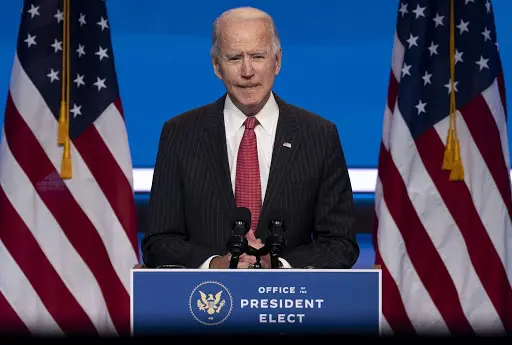By APD writer Alice
There are signs showing that US President-elect Joe Biden would change the Free and Open Indo-Pacific (FOIP) initiative.
Recently there has been a view that President-elect Joe Biden will not refer to the FOIP policy jointly proposed by Japan and the US in his documents. This makes the Japanese government extremely interested in the US’s new Asia policy.
When mentioning FOIP, a Japanese diplomat said perhaps Biden will not want to have the words ever used by the administration of President Donald Trump.
FOIP is an initiative that unites countries to share the value of the rule of law and freedom of navigation, and strengthen economic linkages, contributing to maintaining stability in the Asia-Pacific region.
In 2017, shortly after taking office, US President Donald Trump began to mention this initiative. At that time, the US was looking for a policy towards Asia to replace the "rebalancing" policy that the Obama administration proposed. "Like the policy of 'strategic rebalancing' to Asia at that time, it is likely that FOIP will be replaced under the new government," said an official from the Japanese Ministry of Foreign Affairs.
The change of FOIP can be forecast through the first phone call between Japanese Prime Minister Yoshihide Suga and Joe Biden on November 12. During this conversation, Suga expressed the message of wishing to join the US to implement the "Free and Open Indo-Pacific" initiative. In reply, the US side mentioned a policy of strengthening the Japan-US alliance as a basis for a prosperous and stable Indo-Pacific region. After the ASEAN Summit with Japan, China and South Korea on November 14, in a press conference, the Japanese Prime Minister did not use the phrase "free and open", instead he said "I want to create a peaceful and prosperous Indo-Pacific".
It does not appear that Asia-Pacific will be given much priority in Biden's policy. Looking back to the past, Obama made desperate efforts to "pivot" the US from "endless wars" in the Middle East that depleted the country’s strength and reputation to Asia, which would bring real benefits to America. However, the "pivot" policy failed.
Biden seems to not be interested in continuing rebuilding the US Navy in the Pacific. Meanwhile, he has expressed his interest in joining the Comprehensive and Progressive Agreement for Trans-Pacific Partnership (CPTPP), formerly Trans-Pacific Partnership (TPP), to counterbalance China's growing influence in the region.
Previously, Trump and his Republican Party put an end to the US effort to join the TPP. Of course, the CPTPP will play a very important role in building commercial, security, diplomatic and cultural relationships with countries in the region.
Biden seems to believe that China-US relations could be significantly improved if both countries enter a serious dialogue and withdraw tariffs, sanctions and barriers.
(ASIA PACIFIC DAILY)
 简体中文
简体中文











